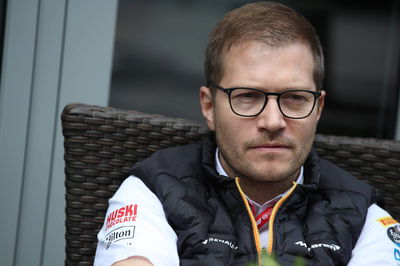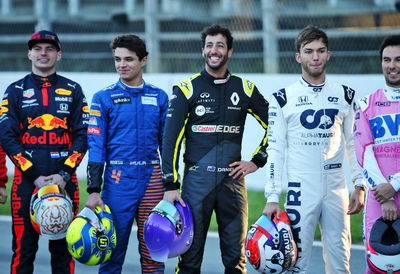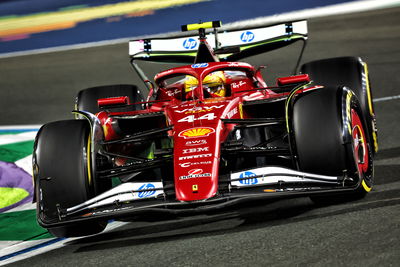McLaren: F1’s current crisis the final wake-up call
McLaren team principal Andreas Seidl sees the ongoing coronavirus crisis as the most important moment to trigger changes to allow Formula 1 and the teams to survive and improve ahead of crunch talks on the budget cap and other cost-cutting measures.
The Woking-based team has led calls for F1 to lower the team budget cap from $175m to $100m per season to drastically reduce costs to help deal with a drop in revenue as racing is suspended indefinitely during the coronavirus pandemic.

McLaren team principal Andreas Seidl sees the ongoing coronavirus crisis as the most important moment to trigger changes to allow Formula 1 and the teams to survive and improve ahead of crunch talks on the budget cap and other cost-cutting measures.
The Woking-based team has led calls for F1 to lower the team budget cap from $175m to $100m per season to drastically reduce costs to help deal with a drop in revenue as racing is suspended indefinitely during the coronavirus pandemic.
With F1’s organising body looking at ways to reshuffle and salvage the 2020 season, the summer shutdown has been pushed forward to April and extended from to five weeks for teams and power unit manufacturers, while five F1 teams including McLaren have put staff into furlough with drivers and key management figures taking pay cuts which Seidl has called “one of the hardest decisions I’ve ever had to make.”
F1 is holding key meetings with team bosses and the FIA on Thursday (April 16) to discuss further cost-cutting measures with lowering the cost cap high on the agenda along with the details on freezing car developments for 2021.
McLaren boss Seidl has echoed Zak Brown’s sentiment that if action isn’t taken he predicts teams could go out of business and leave the sport.
“I think the crisis we’re in now is the final wake-up call that a sport which was unhealthy before and not sustainable has now reached a point where we need big changes and drastic changes as well,” Seidl said during a media video conference.
“For us the most important thing is we simply make the next big step on the budget cap. We think it’s absolutely important now with all the financial losses we will face this year. The magnitude of it still being unknown because so far we don’t actually know when we can go back racing.
“I think it’s important to first of all combine with all the other measures like freezing the cars and so on to survive this year.
“And then it’s also important for our shareholders to show them that the losses you make this year we can somehow compensate them over the next few years.
“Of course we would like to see the budget cap as low as possible, we have put out also the number of $100million which is something we would be in favour of. At the same time we understand that obviously it’s a discussion that involves a lot of different parties and a lot of different teams with different sizes at the moment.”
Despite his concerns, Seidl remains confident the sport as a whole will survive the current crisis but if changes are not made it will leave teams exposed to the biggest risks.
“I don’t see any signs that Formula 1 will not exist next year,” he said. “I think the biggest risk that I see is that we lose teams if we don’t take decisive actions for now.
“It is very important that we put all these actions in place that we have discussed in recent weeks, regarding the freezing of the cars, extension of our shutdowns and so on in order to make sure we do maximum money saving this year.”
Ferrari team principal Mattia Binotto, one of the most vocal opponents to lowering the budget cap further, has suggested teams which sell listed parts and power units to customer teams should be compensated with a bigger budget to cover research and development costs.
Seidl has dismissed the idea as he sees those costs as already managed within the proposed budget caps which teams have previously agreed on.
“It is important to respect also the development costs teams have, for example, that are selling parts to other teams,” he said. “But that is something that is covered anyway in the financial regulations – the so-called notional value of parts. So, I don’t see any reason why we need different caps.”
Currently, the 2020 F1 season is scheduled to get underway on June 28 at the French Grand Prix but the Circuit Paul Ricard race remains under increasing doubts given the country has announced public events will be banned until at least mid-July.











